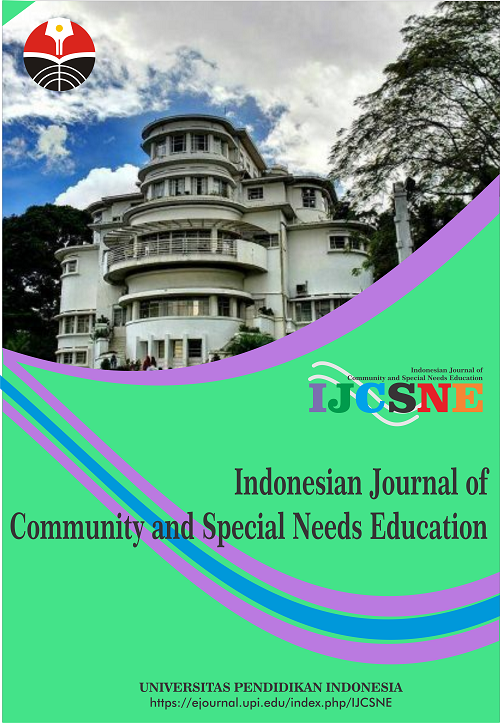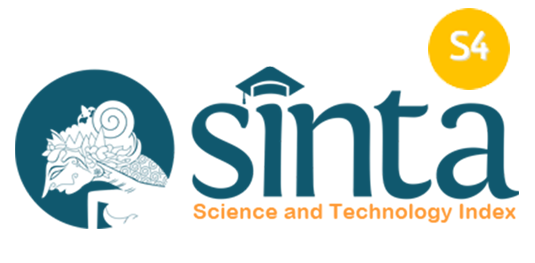Social Inclusive Education Project (SIEP) as a Community for Handling Children with Special Needs in Rural Areas
Abstract
Keywords
Full Text:
PDFReferences
Bose, B., and Heymann, J. (2020). Do inclusive education laws improve primary schooling among children with disabilities?. International Journal of Educational Development, 77(2020), 102208.
Kirana A., and Dewi N. F. K. (2018). Application of methods for children with down syndrome. Journal of Early Childhood Education Study Program, 8(1), 50-55.
Marta, R. (2017). Cognitive handling of down syndrome through the puzzle method in early childhood. OBSESI Journal: Journal of Early Childhood Education, 1(1), 33.
McKenzie, K., Paxton, D., Murray, G. Milanesi, P., and Murray, A. L. (2012). The evaluation of a screening tool for children with an intellectual disability: The child and adolescent intellectual disability screening questionnaire. Research in Developmental Disabilities, 33(2012), 1068-1075.
Nassaji, H. (2015). Qualitative and descriptive research: Data type versus data analysis. Language Teaching Research, 19(2), 1068-1075.
Rudiyati, S. (2010). Handling children with learning difficulties based on learning accommodation. Journal of Education, 40(2), 187-200.
DOI: https://doi.org/10.17509/ijcsne.v2i2.37988
Refbacks
- There are currently no refbacks.
Copyright (c) 1970 Universitas Pendidikan Indonesia

This work is licensed under a Creative Commons Attribution-ShareAlike 4.0 International License.















